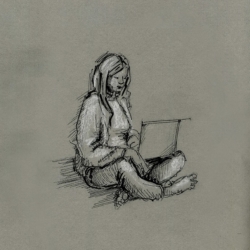To provide the best experiences, we use technologies like cookies to store and/or access device information. Consenting to these technologies will allow us to process data such as browsing behaviour or unique IDs on this site. Not consenting or withdrawing consent, may adversely affect certain features and functions.
The technical storage or access is strictly necessary for the legitimate purpose of enabling the use of a specific service explicitly requested by the subscriber or user, or for the sole purpose of carrying out the transmission of a communication over an electronic communications network.
The technical storage or access is necessary for the legitimate purpose of storing preferences that are not requested by the subscriber or user.
The technical storage or access that is used exclusively for statistical purposes.
The technical storage or access that is used exclusively for anonymous statistical purposes. Without a subpoena, voluntary compliance on the part of your Internet Service Provider, or additional records from a third party, information stored or retrieved for this purpose alone cannot usually be used to identify you.
The technical storage or access is required to create user profiles to send advertising, or to track the user on a website or across several websites for similar marketing purposes.
 Our friends at comms specialist Magenta Associates have announced that the business is now owned by its employees. The company has set up an Employee Ownership Trust which owns the majority of the business. The trust will be led by five trustees to ensure the management team is running the business in the best interests of the employees. Magenta was set up in 2011 by Cathy Hayward, the former editor of FM World (now Facilitate) and FMJ magazine who spotted a gap in the market for a PR agency specialising specifically in facilities management. (more…)
Our friends at comms specialist Magenta Associates have announced that the business is now owned by its employees. The company has set up an Employee Ownership Trust which owns the majority of the business. The trust will be led by five trustees to ensure the management team is running the business in the best interests of the employees. Magenta was set up in 2011 by Cathy Hayward, the former editor of FM World (now Facilitate) and FMJ magazine who spotted a gap in the market for a PR agency specialising specifically in facilities management. (more…)








 New research from
New research from 























July 18, 2024
Connection through design: The role of office designers in fostering workplace ties
by Mark Catchlove • Comment, Workplace design